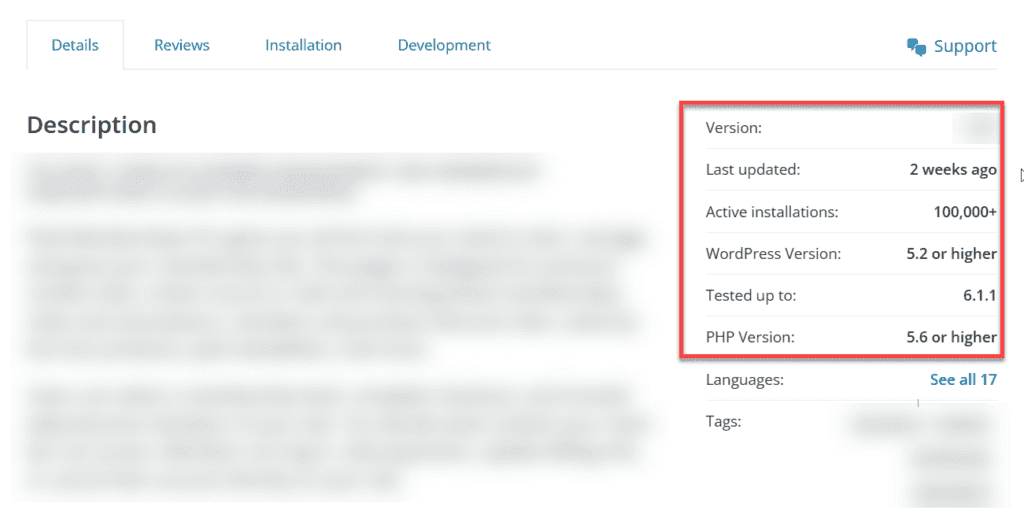One thing that has helped WordPress become absolutely dominant in the CMS (content management system) market is its plugins. There are just over 60,000 plugins in the WordPress.org repository at the time of this writing. Plugins can do basic but essential things like allowing you to use SMTP for emailing or having a contact form on your site, enabling robust user forums, turning your site into an LMS (learning management system) or membership site, or a few thousand (literally) other things.
In fact, in many cases, the issue isn’t that you can’t find a plugin to suit your needs but instead you find several and are faced with making a choice.
So when it comes to WordPress plugins, how do you decide which is best for you?
Basic Considerations
Is it up to date?
Make sure the developer actively maintains the plugin. If it hasn’t been updated in a couple of months, you should probably keep looking.
Also, the “tested up to” should match the latest version of WordPress. Many plugins are created by individuals, and if a new version of WordPress was just released, it’s certainly not too damning if they take a few days to catch up. On the other hand, if they’re several versions behind in testing, you’d do best to look for other options.

The reason that this is so important is that WordPress is updated frequently, and while it doesn’t happen often, changes to WordPress core can affect the behavior of plugins on your site. If you’re relying on a particular plugin for your site’s functionality, you want to know that it’s being tested with new versions of WordPress and updated for compatibility when necessary.
If you see a warning message like this, it’s probably best to avoid the plugin:

If you really want to use a plugin that hasn’t been kept up to date, bear in mind that you might need to maintain it yourself.
Popularity
As someone who has had plugins on WordPress.org in the past, I can tell you that popularity matters. A lot of people create plugins in the hope that they’ll be wildly successful and, when they’re not, they abandon them.
The WordPress plugin market is a potentially lucrative place, however, if you have a good plugin (and better marketing). The more active installations a plugin has, the more likely its maintainers are to stick with it. Also, popularity means thousands, tens of thousands, or more people are using the plugin on their websites, and if there’s a problem, you’ll see it in the “reviews” tab.
Popularity should be contextualized, though. Recently, I had the occasion to look for a “safety exit” plugin on behalf of a client, and the one I selected has fewer than a thousand active installations. However, this plugin’s function isn’t something that most every website needs; it has a niche audience. In a case like this, keep your expectations for installation numbers reasonable.
Ratings and responsiveness
And then there are the ratings. Look at the ratings and see what people are saying about the plugin. If the rating isn’t 4+ stars, look for a reason why. For smaller plugins that have fewer reviews, one or two negative reviews can really through off the average, so check into why people are complaining (if they are).
If there are complaints, look to see how the plugin maintainer(s) are handling them. Are they responding promptly to issues and complaints? Every plugin has a “support forum” built into WordPress.org; look and see if people’s questions, suggestions, or issues are getting responses and – when appropriate – resolutions.
Bottom Line
The fact that WordPress is so “pluggable” means that it can – and for the most part does – cover every need that you’ll ever have in a website. But you know what they say about “with great power…”
Since WordPress is free (as in beer), you can go it totally on your own, and that makes the responsibility of plugin choices on you. I hope this post is helpful in pointing out some of the things you should consider when adding plugins to your WordPress website.
Please feel free to hit me up with any questions you might have in the comment section below.

